Water supply is interrupted for 200,000 people in Volgograd, a large city in south Russia, after a sewage pipe system accident. Poop has flooded streets and local sights and is now flowing into the Volga, the longest river in Europe. A state of emergency has been declared in the city. The Volgograd authorities and public utility services admitted that they had had no clue about the state of the vital city infrastructure until this day. Novaya Gazeta Europe has covered this major emergency.
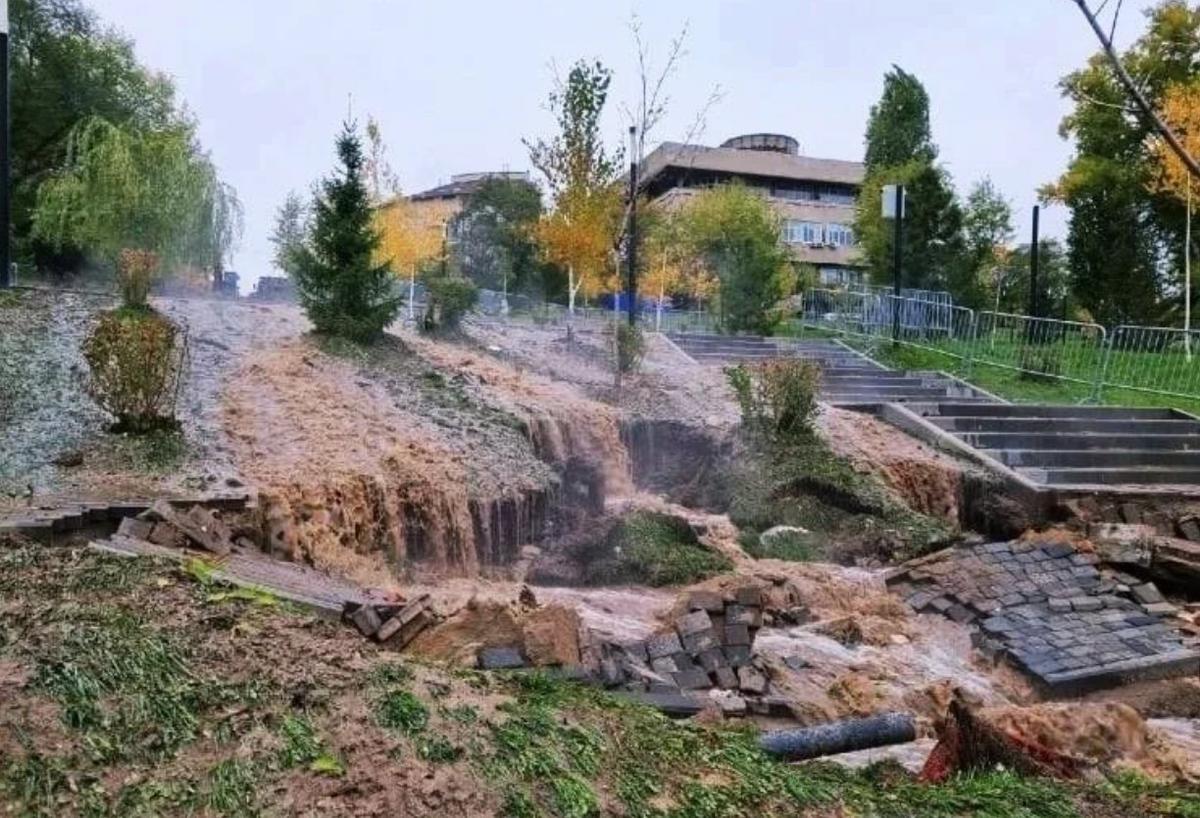
Photo: socials
The sewage system burst in the early hours of 28 October. A concrete sewer tunnel’s arch of the line that served two of Volgograd’s districts collapsed in the plain field of the Tsaritsa River.
Two 1200-mm pipelines were located at the collapse site. According to the preliminary data, one of them was damaged.
The utility company in charge of the sewer tunnel reported that a repair team had immediately been dispatched. The crew worked through the night but to no avail.
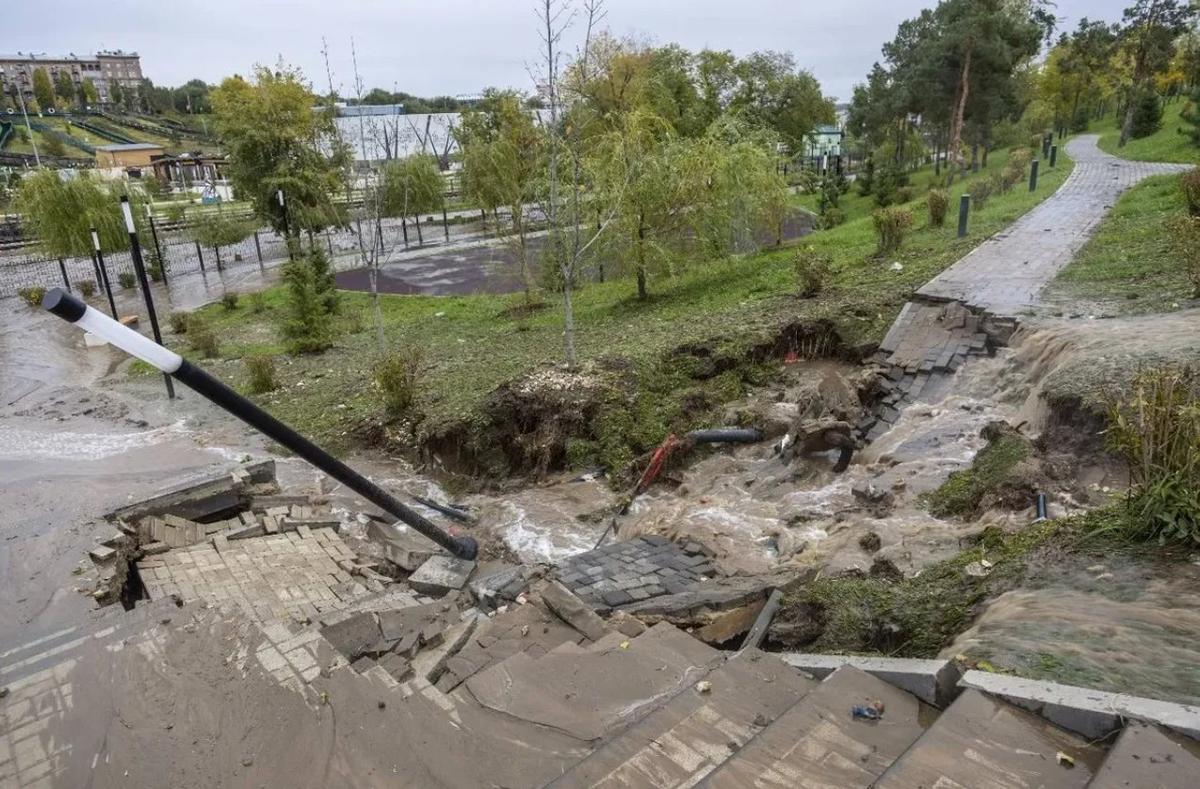
Photo: socials
Consequently, sewage rushed into the city. It washed out a local park and then streamed down along the streets into the Volga.
The muck later flooded several population attractions, including a children’s railroad, a park and a part of the recently built embankment near Gasitel, a steamship monument. Local media reported that ‘Russia’ and ‘Volgograd’ signs placed outside of the monument terrace also were flooded by faecal matter.
The utility company then cut off the water supply to the two districts that were served by the pipeline.
By the evening, the prosecutor’s office had been looking into the situation and demanding that a criminal case be launched.
“As a result of the accident, hot- and cold-water supply to more than 1,100 apartment blocks6 17,000 private houses and several social facilities was halted,” the regional prosecutor’s office said.
According to media reports, locals bought all the stocks of bottled water in shops.
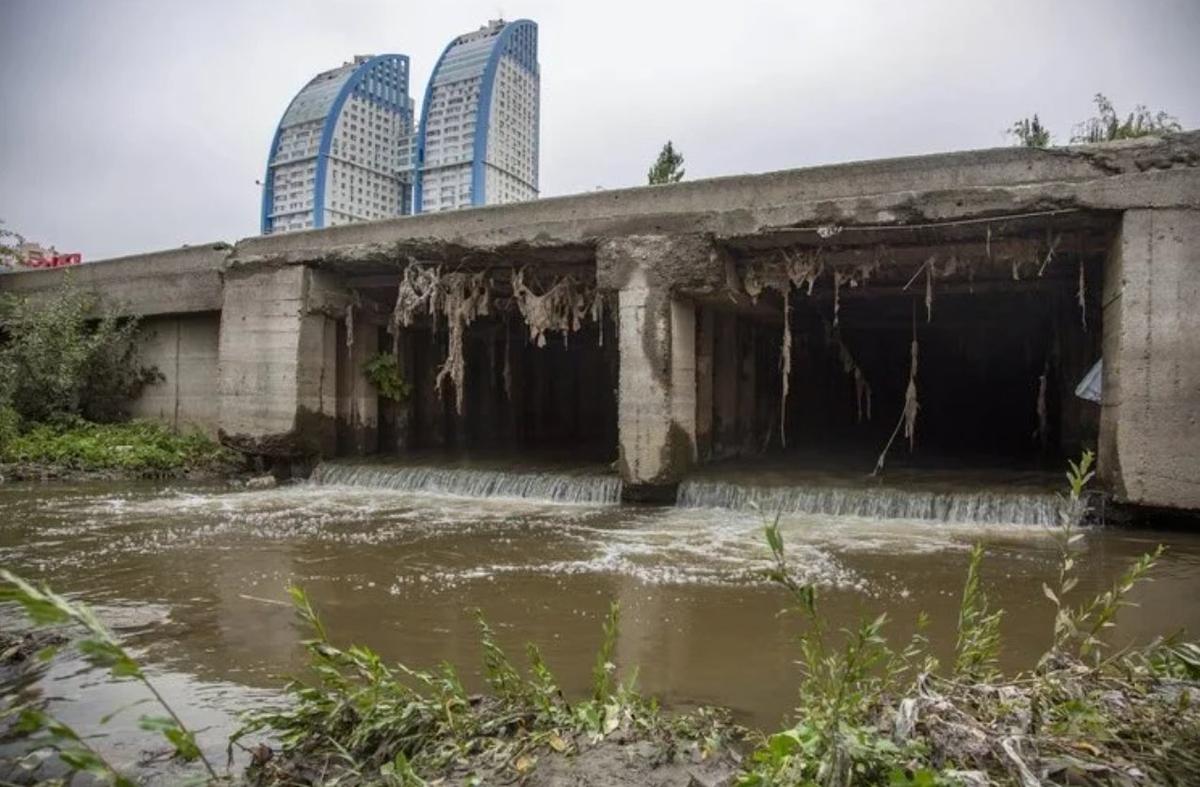
Photo: socials
On 29 October, it emerged that the scale of the accident is much more serious than previously thought. Both pipes of the main sewer tunnel were damaged. A state of emergency was promptly declared then.
Utility services managed to locate the spot and the nature of the damage only on 30 October.
“According to preliminary data, 150 running meters of both pipes will have to be replaced at the accident site,” the emergency response headquarters said.
The same day, locals started to complain about central heating being turned off. Hotlines were expectedly overloaded.
Volgograd residents drafted a collective letter, calling to hold responsible those who did not prevent the accident in the city administration and the utility company.
The Volgograd branch of the Russian Emergency Ministry organised deliveries of recycled water in tanks. According to the agency, 26 cars started circulating around the two affected districts at 7 AM. Since then, the ministry has been publishing water delivery scheduled daily. At the same time, no map of specific water delivery points was attached. A member of the city council had to take it upon himself to make such a map.
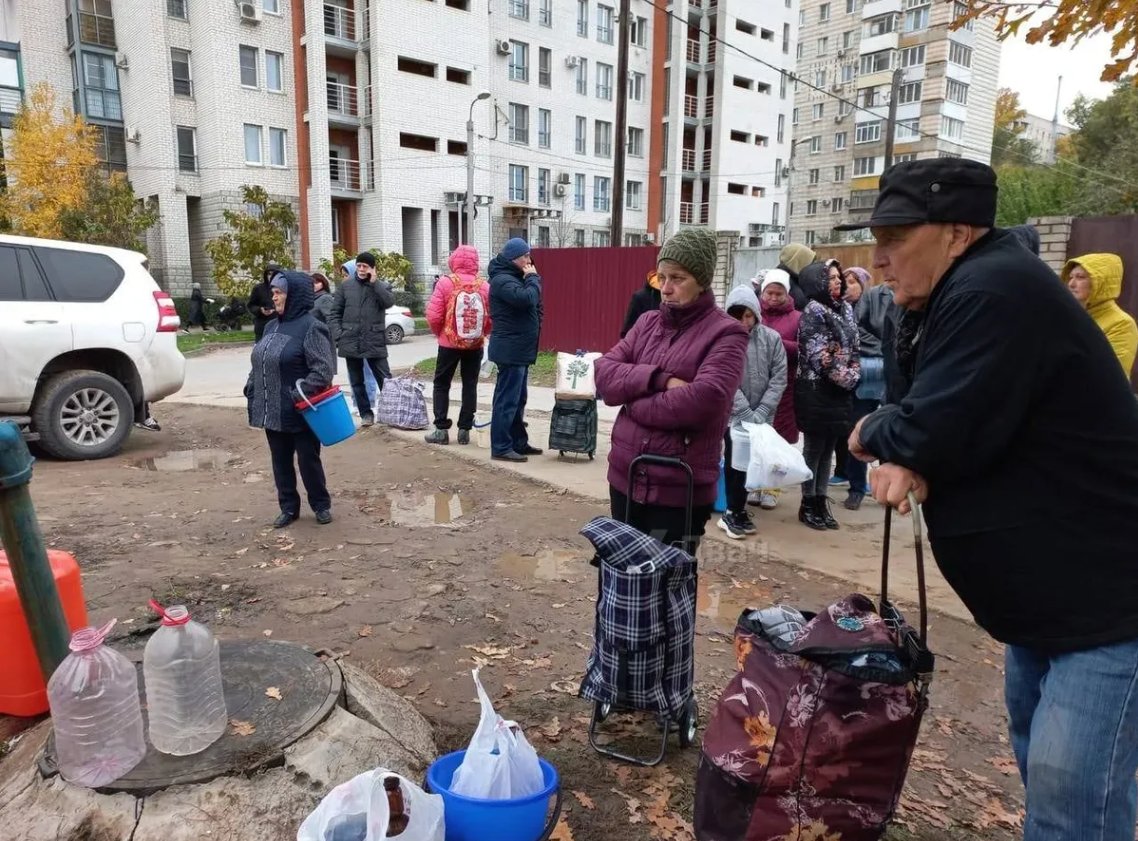
Photo: socials
Meanwhile, another district reported water supply issues. “There has been no water since Friday evening,” Volgograd residents told the V1.ru local portal. “They did not tell us when the repairs would be completed. The water delivery issue is also on the table. They told us, ‘Listen. If they come, they will hoot.’”
Several school and universities cancelled classes amid the sewage emergency.
Andrey Bocharov, regional governor, arrived on the site on the same day and instructed relevant agencies to reconnect houses to water supply within 24 hours and start slowly restoring central heating.
The governor then also acknowledged that the authorities had had very little idea about the state of the pipes.
“Initially, we encountered problems with locating the exact place where the sewage pipe burst,” he said, adding that essential and necessary parts were missing, while the documentation was not meeting any standards.
On 31 October, the Investigative Committee launched two criminal cases under the water pollution and negligence when providing services articles of the criminal code.
Head of the Russian ecology monitoring agency Svetlana Radionova also spoke about the Volga pollution. “Inspectors and specialists <…> quickly examined the polluted area and took water and soil samples. The sample tests will make it possible to determine how much damage was caused to the nature and what punishment should be administered to those responsible,” she stressed via Telegram.
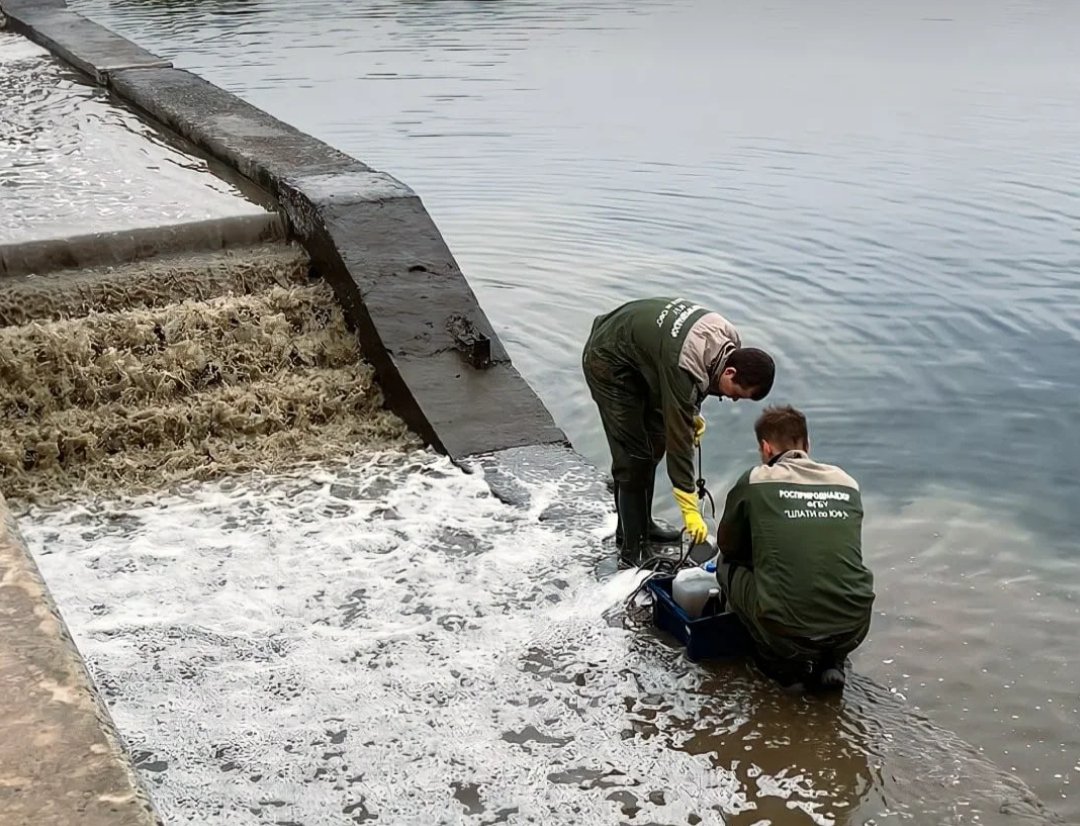
Photo: Svetlana Rodionova's telegram channel
By the evening of 1 November, the city finally started getting water despite the fact that the governor’s deadline was not met.
The administration promised to turn on “a trickle” of water. The mayor, meanwhile, said that the water supply would be restored gradually.
“According to our plan, we are starting a gradual fill-up of the system,” Volgograd Mayor Vladimir Marchenko said. “We will do it in accordance with the plan to avoid the water hammer effect.”
The city authorities are worried that they might have another emergency on their hands after the water supply is back. Internal house systems might not cope with the pressure changes.
Join us in rebuilding Novaya Gazeta Europe
The Russian government has banned independent media. We were forced to leave our country in order to keep doing our job, telling our readers about what is going on Russia, Ukraine and Europe.
We will continue fighting against warfare and dictatorship. We believe that freedom of speech is the most efficient antidote against tyranny. Support us financially to help us fight for peace and freedom.
By clicking the Support button, you agree to the processing of your personal data.
To cancel a regular donation, please write to [email protected]
